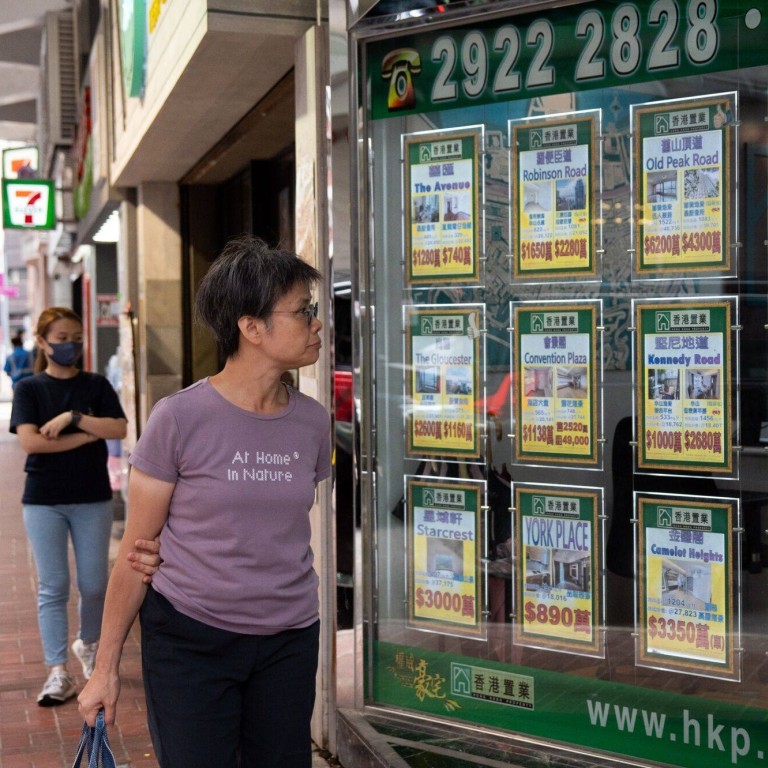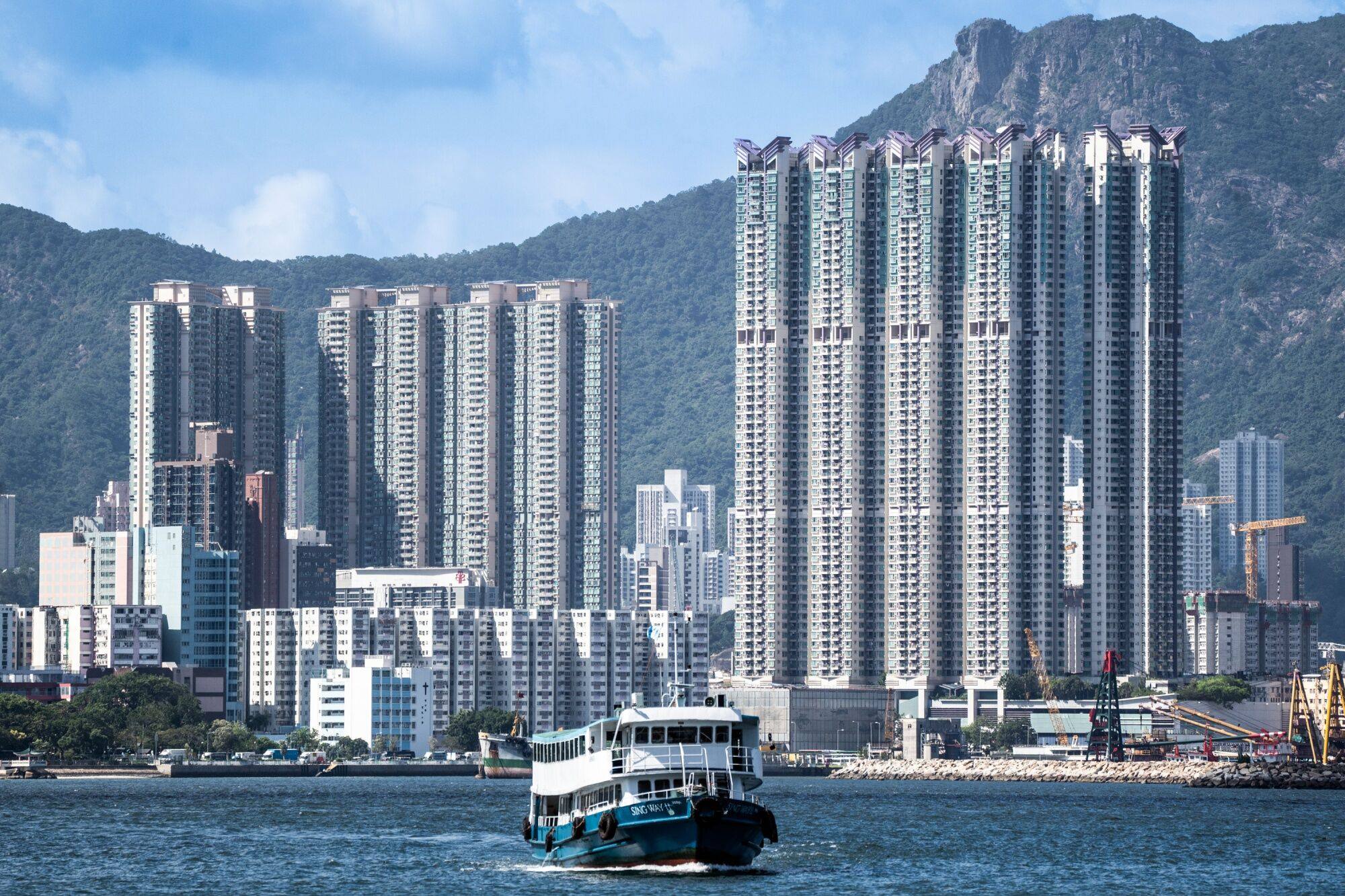
Scrapping Hong Kong property curbs would be welcomed, but not sufficient to fix what ails the flagging sector: analysts
- Rolling back cooling measures in place since the early 2010s is likely to boost home prices, analysts say
- But ‘with the bulk of unsold stock amid high financing costs, pricing in the short term will still be under pressure’, says JLL senior director
An improved economy, a better jobs outlook and a turnaround in stock market performance are also needed to boost homebuying confidence and sentiment in the city, they said.
“We believe that the best timing to relax the measures has been missed, but scrapping all of the measures could potentially lift market sentiment [and] transaction volume, and let the free-market mechanism adjust itself,” said Cathie Chung, senior director of research at JLL. “However, with the bulk of unsold stock amid high financing costs, pricing in the short term will still be under pressure.”

Property prices in the city typically mirror the movement of the stock market, albeit with a lag of several months. So far this year, the bellwether Hang Seng Index is down 13.76 per cent. Policies to promote initial public offerings and revive the market could potentially help to improve sentiment in the property sector, Chung said.
So far this year, home prices have gained 1.34 per cent compared with the end of 2022. However, JLL expects that year-to-date growth to be erased by the end of September.
Hong Kong began rolling out property curbs in November 2010 with the introduction of the Special Stamp Duty (SSD). At the time the city’s interest rate was at a record low of 0.5 per cent.
Hong Kong developer calls for review of stifling property curbs to end the rot
Following the introduction of the SSD, average monthly home sales fell 38 per cent to 7,000 in 2011, from 11,300 in 2010, according to JLL. They have not since returned to their 2010 level.
SSD is a tax that is applicable to any residential property that is resold within 36 months, and the less time an owner holds a property, the higher the applicable rate. The SSD initially was between 5 and 15 per cent, but this was raised to between 10 and 20 per cent in 2012.
The SSD was followed by the Buyer Stamp Duty, implemented in October 2012. It aims to suppress demand from buyers who are not Hong Kong permanent residents, charging such buyers a flat rate of 15 per cent on the value of the property.
Another curb was introduced in 2013 with the Double Stamp Duty, which doubles the ad valorem (according to value) stamp duty tax for a buyer who is not a first-time buyer or who already holds a residential property in Hong Kong.
Finally, in November 2016, the government raised the ad valorem rate to a flat 15 per cent for all buyers except Hong Kong permanent residents who are first-time buyers or do not already own a residential property in Hong Kong. The rate was between 4.25 and 8.5 per cent previously.
Hong Kong finance chief hints decade-old property curbs have had their day
“I believe the stamp duties imposed on non-Hong Kong residents, with a combined levy of 30 per cent, had the most significant impact on the residential market,” said Rosanna Tang, executive director and head of research for Hong Kong at Cushman and Wakefield.
“These measures deterred certain overseas and mainland Chinese capital from investing into Hong Kong’s residential market. This is particularly relevant as the government is currently striving to attract talent from around the world. If these [people] find it too expensive to purchase a home in Hong Kong, it may discourage them from staying in the city for the long haul.”
Prices remained unaffordable for many Hongkongers despite the government’s cooling measures, said Martin Wong, director and head of research and consultancy for Greater China at Knight Frank.
“The measures were not implemented as designed as they only reduced the transaction volume but did not halt the property price upsurge,” he said. “There is not much the government can do at the moment to help the property market immediately, apart from scrapping the cooling measures, given that the market is affected by several negative factors such as high interest rates, high volumes of unsold new units and economic uncertainty.”

